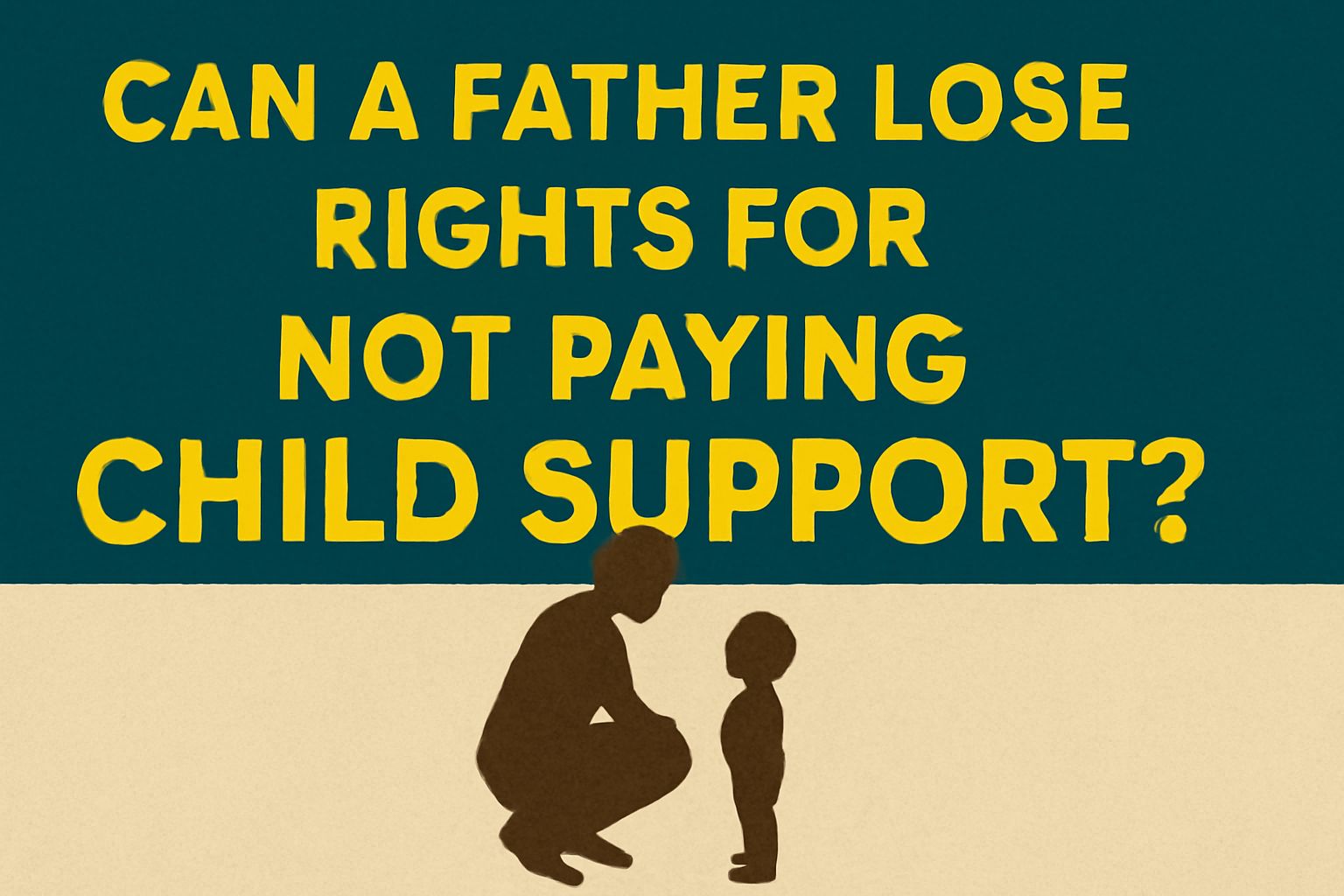If you’re one of those asking the question, “Can a father lose rights for not paying child support?”, the answer is generally no, but with exceptions and considerations for the laws in your jurisdiction.
In most places, simply missing child support payments does not automatically lead to the loss of parental rights. However, failing to pay consistently, combined with other factors such as neglect or abandonment, can lead to it in some cases. Here’s a breakdown of how this works in the United States and some other countries, including exceptions and the legal process.
The Basics of Parental Rights and Child Support
Parental rights are typically separate from the financial obligation of paying child support. In most legal systems, a father’s failure to pay child support alone does not automatically result in the loss of his parental rights.

However, child support and parental rights are often tied together when the court determines if the parent is fulfilling their duties as a responsible caregiver. If the nonpayment of child support is part of a pattern of neglect, abandonment, or failure to care for the child, courts can intervene and consider terminating parental rights. Meanwhile, I talked about DNA tests here.
What Happens in the United States?
In the United States, the laws surrounding child support and parental rights can vary by state, but the basic premise is often the same.
- Nonpayment of child support does not automatically lead to the loss of parental rights. The state will usually try other methods to enforce payment, such as wage garnishment or tax refund interception. If you as a father continues to fail to meet your financial obligations, you will face fines, legal penalties, and jail time in extreme cases.
- Termination of parental rights can occur if there are severe cases of abandonment or neglect. For example, if a father fails to pay child support for an extended period (usually 6 months or more) and also has no contact with or care for the child, courts may determine that the father is abandoning the child, and this can lead to a termination of parental rights.
- Exceptions: In some situations, courts may make an exception for fathers who are unable to pay due to financial hardship, and a temporary suspension of child support may occur. If the father is actively trying to fulfill his responsibilities, but circumstances (such as loss of job or illness) have made it difficult, courts often show flexibility. However, courts still expect an effort to make child support payments when possible.
How About Other Countries?
In other countries, the rules for parental rights and child support can differ significantly:
- In the United Kingdom, nonpayment of child support is enforced through the Child Maintenance Service, which can take action like direct deductions from income. However, like in the U.S., failure to pay does not typically lead to the loss of parental rights unless there is a broader pattern of neglect or abandonment.
- In Canada, similar laws exist where nonpayment of child support will lead to enforcement actions, but it does not lead to automatic termination of parental rights. However, if a parent fails to provide care, this could be taken into account if custody or visitation is ever questioned.
- In Nigeria and many African countries, child support and parental rights are treated somewhat similarly, though local laws may vary. Courts in Nigeria will typically enforce child support payments but will only terminate parental rights if there is clear evidence of neglect, abandonment, or abuse.
Exceptions and Considerations
Even in countries like the United States, there are exceptions where a father may not lose rights even after not paying child support. For example:
- If the father is actively engaged in other aspects of the child’s life (like visitation or emotional support), the court may focus on his overall involvement rather than just the financial aspects.
- In some states, courts allow flexibility in terms of payment methods or timelines when there is proof of financial struggle. The courts will often prioritize ensuring the child’s well-being over punitive actions.
However, a father’s rights can be compromised if he demonstrates a pattern of neglecting his child’s physical, emotional, or financial needs. Missing payments, combined with a lack of involvement, can trigger the court to consider termination of rights.
A father will not automatically lose his parental rights simply because he fails to pay child support. But his rights could be in jeopardy if his actions, such as abandoning or neglecting the child, are seen as not meeting the best interests of the child. Consult with a family law professional to understand how the law applies in your jurisdiction and what options you have to protect your rights as a father or to enforce support payments.
